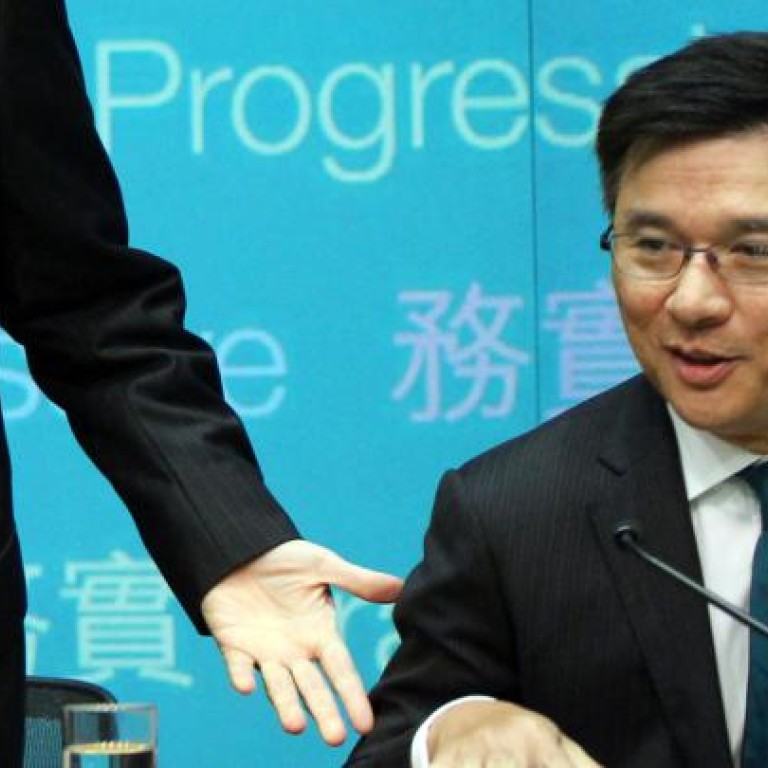
RQFII expansion likely to draw banks and funds
The expansion announced by mainland regulators last week to the renminbi qualified foreign institutional investor (RQFII) pilot scheme will see many international banks and fund houses based in Hong Kong applying to participate, according to Chan Ka-keung, the Secretary for Financial Services and the Treasury.
On March 6, the China Securities Regulatory Commission said the scheme would be expanded to allow Hong Kong-based banks, insurers and fund house to apply for licences to offer yuan-denominated fund products to mainland investors.
"The expansion of the RQFII scheme will boost international investors' interest in using yuan to invest," Chan said at a media gathering yesterday.
"At present, about 80 per cent of investors in the A-share market are retail investors, compared with about 30 per cent in Hong Kong and about 10 per cent in the United States. An increase in the number of institutional investors such as insurance companies and fund houses would add stability and long-term funding in the mainland stock and bond markets."
Unlike Hong Kong, where they are free to invest in the stock and bond markets, foreign investors on the mainland can only invest through two QFII schemes that operate under quota systems. One is denominated mainly in US dollars while the other is in yuan. The dollar-denominated QFII was launched in 2002 and now has more than 180 international firms participating, including big pension funds, insurance companies and investment banks. The yuan-denominated RQFII, introduced at the end of 2011, has a narrower scope and licences have only been granted to the Hong Kong subsidiaries of 27 mainland firms. The funds were allowed to invest a maximum of 20 per cent of their assets in A shares and the rest in bonds.
But after lobbying by the Hong Kong government and the investment sector, the CSRC last week announced the expansion of the scheme and removed the 20 per cent stock investment cap.
The regulator also said at the weekend that it would allow Hong Kong, Macau and Taiwan residents living on the mainland to invest in the A-share market.
Analysts believed the relaxations came because the mainland regulator wanted to attract more investors to the Shanghai stock market, which has been among the world's worst performers in the past three years.

